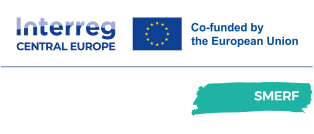EREMA Group GmbH: Another life for plastic
Description of institution - short history and main activities
EREMA Group Gmbh was founded in 1983 by Georg Wendelin, Helmut Bacher and Helmuth Schulz. Its headquarter is in Ansfelden near Linz, Austria and it consists of the following companies: 3S, EREMA, KEYCYCLE, PLASMAC, POWERFIL, PURE LOOP, UMAC, BLUEONE Solutions und plasticpreneur. The company stands as an exemplary model for sustainability, with its primary objective being the effective management of plastic waste. EREMA addresses the critical issue of plastic pollution by fostering a circular economy through their plastics recycling machines and advanced recycling technologies. Target groups for EREMA's sustainability initiatives include industries generating plastic waste, waste management entities, and manufacturers seeking eco-friendly materials.
What was the challenge or the problem?
The challenge for the company is to find ways how to recycle plastics and create a new value for plastic waste. The focus of EREMA is on improving the recycling technologies to reduce plastic pollution. They look for solutions for efficient processing of diverse plastic waste streams, including heavily contaminated materials.
What solutions have been implemented?
EREMA addresses the critical issue of plastic pollution by fostering a circular economy through advanced recycling technologies. The content of EREMA's practices revolves around recycling machinery and innovative processes. They have refined their technologies to handle diverse plastic streams effectively, adapting to the dynamic nature of plastic waste.
Their innovativeness lies in the continuous improvement of recycling technologies and the development of customized solutions. Their commitment to research and development ensures that their practices stay at the forefront of the evolving landscape of plastic recycling.
Who were the collaborating actors?
For the company the partners and stakeholders are very important to their success. By sharing knowledge and collaborating with partners worldwide, they are able to refine their technologies. Furthermore, they are challenged to come up with innovative ideas and customized solutions. With the information received from their partners they are able to face this challenge.
What were needed resources?
As already mentioned, for EREMA R&D is very important. With their findings they are able to find new ideas. In addition to their findings, the knowledge from partners contributes a lot to their innovativeness. When looking at the success of EREMA, it underlines the importance of collaboration and knowledge sharing within the communities. Furthermore, it also emphasizes the need for a holistic and cooperative approach.
What is the evidence of success?
EREMA’s success is shown their impact on the plastic industry. Their contribution in sustainability has garnered commitment from multiple stakeholders, leading to initiation of collective actions. The heightened awareness of sustainable practices has positively influenced policy considerations, reinforcing the importance of responsible plastic recycling in the broader environmental discourse.
The company’s practices have reduced the amount of plastic waste, as they improved their recycling systems and technologies. They have contributed to a substantial decrease in the reliance on virgin materials, curbing the environmental impact associated with plastic production.
Also, the number of satisfied customers reflect EREMA’s success. Industries, waste management entities, and manufacturers utilizing EREMA's technologies attest to the effectiveness of their practices in enhancing environmental responsibility and reducing their carbon footprint. EREMA's commitment to research and development has led to the creation of cutting-edge recycling systems, contributing to a more circular approach in plastic use.
EREMA's practices have not only contributed to the reduction of plastic waste but have also had a tangible impact on job creation, supporting local economies.
Potential for learning or transfer:
Looking at the overall success of EREMA, other companies can learn a lot from their practices.
Their success highlights the importance of fostering collaboration and involving stakeholders. EREMA presents that collective advancement of technology and innovation can be achieved by sharing knowledge.
Knowledge sharing and collaborations supports EREMA’s contribution to global transition towards a more sustainable and circular approach to plastic use.
Furthermore, the transferability of EREMA's solutions to other stakeholders or regions is a notable strength. EREMA's technologies are scalable and adaptable, making them applicable to various industries and regions globally.
